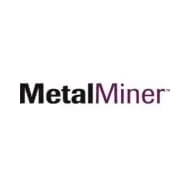- Chinese automaker BYD has selected Austria’s Voestalpine as its initial steel supplier for a new passenger vehicle production plant in Szeged, Hungary, with operations set to begin in Q4 2025.
- The BYD plant in Hungary is projected to have an annual production capacity of 300,000 units by 2030, with an estimated cost of €4–5 billion.
- BYD is increasing its presence in the European battery electric vehicle market, surpassing Tesla in European sales in April, while facing scrutiny from European regulators regarding state funding and countervailing duties on Chinese automotive exporters.

Via Metal Miner
Chinese automaker BYD recently appointed Austria’s Voestalpine as its first steel supplier for the planned production plant in Hungary. On June 24, the Linz-headquartered steel industry leader officially announced it will begin supplying autobody and outer-skin components from its rolling mills to BYD’s Szeged plant in Q4 2025.
Szeged sits about 180 kilometers south of Hungary’s capital, Budapest, near the national border with Serbia. BYD officially announced plans to build a passenger vehicle factory in Szeged in December 2023, but did not provide further details at the time. The new plant is scheduled to begin operations with an estimated annual production capacity of 300,000 units by 2030. Reports estimate the project’s total cost at €4–5 billion ($4.71–5.9 billion).
Questions Still Remain Regarding the Deal
Voestalpine has not disclosed how many tons of steel it will supply to BYD, nor how it plans to transport the autobody components. Several attempts to contact the steelmaker for clarification were unsuccessful.
Voestalpine’s main facility in Linz can produce up to 4 million metric tons of crude steel annually via blast furnaces and basic oxygen furnaces. The company then uses this crude steel to cast slabs, which it then rolls into hot- and cold-rolled coil and hot-dipped galvanized sheet for various sectors. According to local steel industry officials, the firm’s target industries include automotive, aerospace, energy, rail and construction. It also manufactures specialty steels for tooling.
Europe’s Steel Industry Sees Declining Prices
According to market sources cited by MetalMiner, the final week of June saw Western European mills offering hot-rolled coil (HRC) at €570 ($670) per metric ton ex-works for August rolling and September delivery. This represents a significant decline from the €620 ($730) seen in late May. Cold-rolled coil carries an average premium of €100 ($115) per metric ton, while hot-dipped galvanized (HDG) coil premiums can reach up to €300 ($350).
One steel industry expert noted that the steel required for BYD’s 300,000 planned vehicles in Europe represents a relatively small volume for Voestalpine. He also pointed out that grain-oriented electrical steel used in BYD’s electronic components will likely originate from China. Voestalpine continues to maintain a competitive position among European steelmakers, thanks to its downstream operations and customer support services.
BYD Continues to Establish a Presence in the European Market
Meanwhile, BYD has faced scrutiny from European regulators over the low cost of its automobiles. In March, the European Commission launched an investigation into state funding for the Szeged plant. It also imposed countervailing duties on Chinese automotive exporters, which averaged nearly 22.5%.
The Commission announced the new duties on December 12, with the changes set to take effect on October 30, 2024. According to EC data, BYD and Geely face countervailing duties of 17% and 18%, respectively, while non-cooperating producers face duties as high as 35.3%.
BYD’s share of the European battery electric vehicle market currently stands at around 8%, with projections suggesting it could reach 15% by 2030. In April, BYD surpassed Tesla in European sales for the first time. UK auto research firm JATO reported that registrations of BYD vehicles in 28 European countries increased by 169% year-over-year, rising from 2,688 to 7,231 units. In contrast, Tesla registrations dropped 49%, falling to 7,165 units from 14,049.
According to the JATO data, Germany’s Volkswagen led the European BEV market with 23,514 new registrations in April, up 61% from 14,606 units the previous year.
By Christopher Rivituso
More Top Reads From Oilprice.com
Metal Miner
MetalMiner is the largest metals-related media site in the US according to third party ranking sites. With a preemptive global perspective on the issues, trends,…











